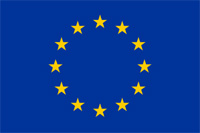MENU
Affiliates only
Login
Login

The reports conclude that EU member states have considerably different means of implementing the anti-money laundering directive, which could undermine the European wide efforts to combat money laundering. The differences stem from different national interpretations of the requirements of the directive. They call for the EU to look into addressing the problems.
The first report, titled “Report on the legal, regulatory, and supervisory implementation across EU Member States in relation to the Beneficial Owners Customer Due Diligence requirements,” looks into the current legal, regulatory, and supervisory implementation of the anti-money laundering-counter-terroist finance frameworks. The reported looked at national differences in implementation and the potential gaps created, which could be exploited.
The related second report, titled “Report on the legal and regulatory provisions and supervisory expectations across EU Member States of Simplified Due Diligence requirements where the customers are credit and financial institutions” outlines the EU Members States’ legal and regulatory provisions and supervisory expectations “in relation to the application of Simplified Due Diligence (SDD) requirements of the third money laundering directive. This report looks exclusively at the” low risk situation where SDD is applicable, where the customer is a credit or financial institution situated in an EU/EEA state” or in a country with equivalent anti-money laundering requirements.
The joint committee is a “forum for cooperation that was established on 1st January 2011, with the goal of strengthening cooperation between the European Banking Authority (EBA), European Securities and Markets Authority (ESMA) and European Insurance and Occupational Pensions Authority (EIOPA), collectively know as the three European Supervisory Authorities (ESAs).“